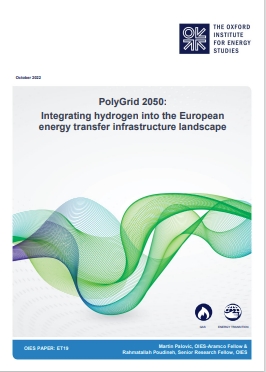PolyGrid 2050:将氢气融入欧洲能源转移基础设施格局
PolyGrid 2050: Integrating hydrogen into the European energy transfer infrastructure landscape

【关键词】 cross-sectoral coordination ; ET 19 ; ET19 ; hydrogen integration ; integrated infrastructure planning ; intermodal competition ; whole-system approach ;
Development of a hydrogen economy will depend on adequate transportation infrastructure. Most discussion of hydrogen transportation to date has focused on adapting natural gas networks, but the issue is more complex. Hydrogen can also be transported by dedicated new pipelines as well as other transportation networks (e.g., truck, rail, and marine transport) and even produced on-site by transferring electrical energy instead of hydrogen. In future, end users’ ability to switch from one form of delivery to another will result in new linkages between these diverse infrastructures in the sense that energy flows of different sectors will become more interdependent, and the widespread use of hydrogen is likely to strengthen this. This raises the fundamental question of how to prevent inefficiency (such as unnecessarily high hydrogen infrastructure costs or suboptimal utilization of gas and power networks) and redundancy in the future hydrogen transport infrastructure. This task is made more challenging by technological uncertainty, the unpredictability of future supply and demand for hydrogen, network externality effects, and investment irreversibility of grid-based infrastructures. Meeting these challenges entails coordinating investments in hydrogen transportation infrastructures across all modes in order to establish a cross-sectoral hydrogen polygrid. This paper analyses the strengths and shortcomings of three possible approaches—centrally coordinated, market-based, and regulatory—to this task. Finally, the paper offers policy recommendations on establishing a coherent institutional framework governing investment in the future hydrogen polygrid.
相关资源